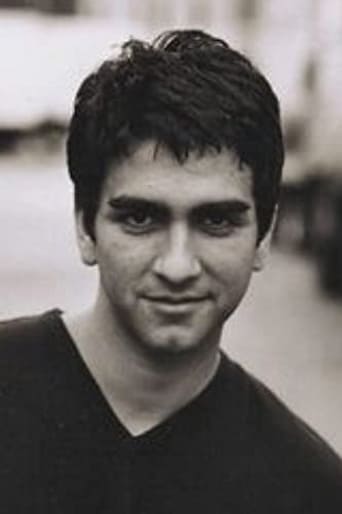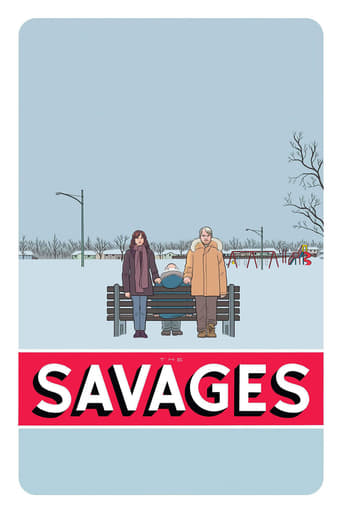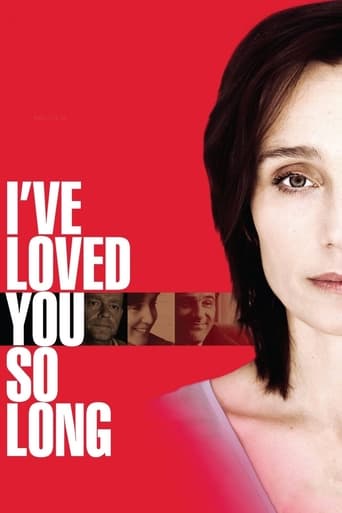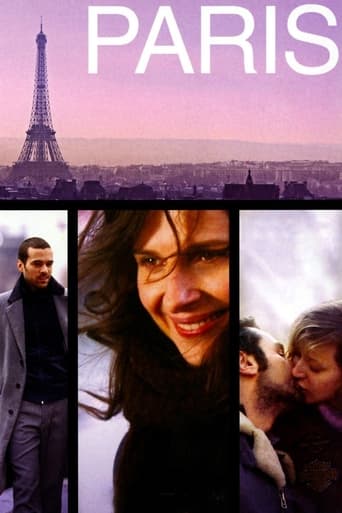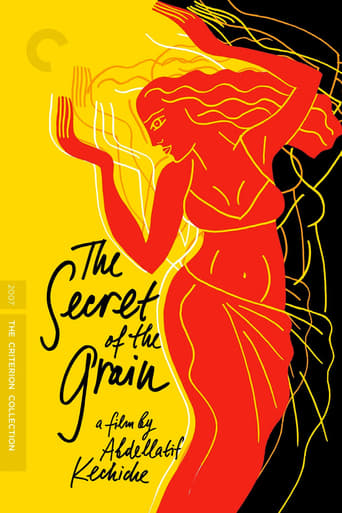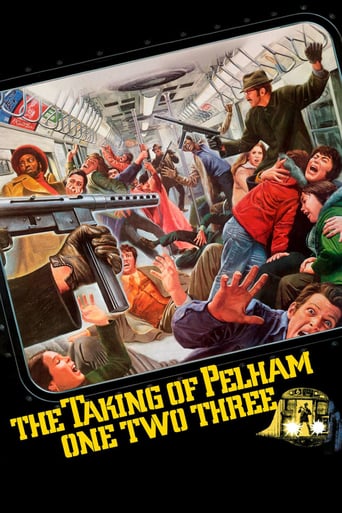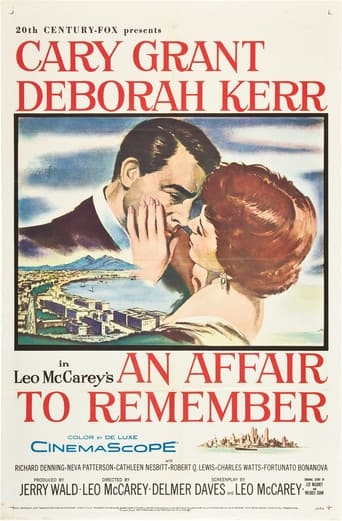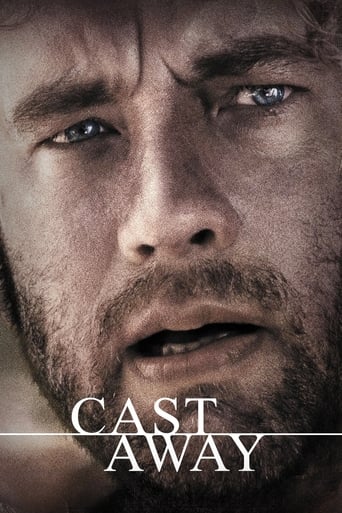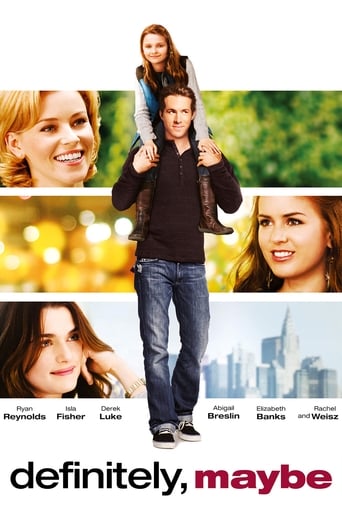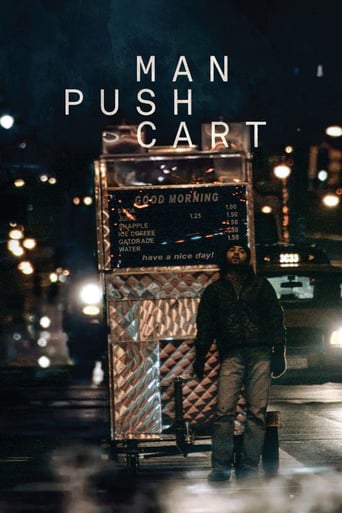
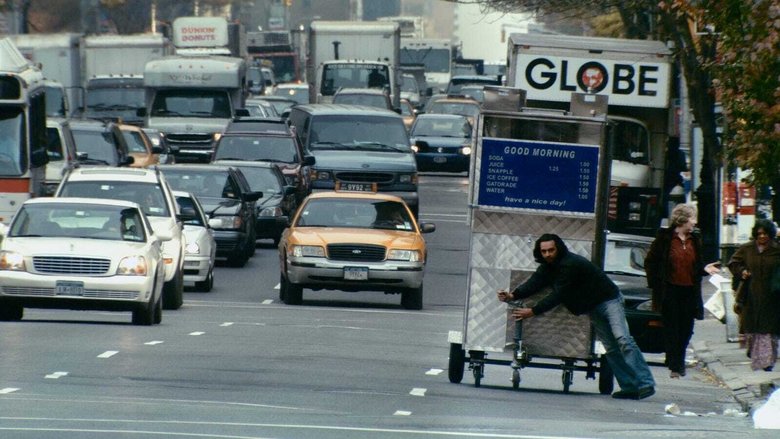
Man Push Cart (2006)
Every night while the city sleeps, Ahmad, a former Pakistani rock star turned immigrant, drags his heavy cart along the streets of New York. And every morning, he sells coffee and donuts to a city he cannot call his own. One day, however, the pattern of this harsh existence is broken by a glimmer of hope for a better life.
Watch Trailer
Cast


Similar titles
Reviews
Sick Product of a Sick System
It's an amazing and heartbreaking story.
The film creates a perfect balance between action and depth of basic needs, in the midst of an infertile atmosphere.
By the time the dramatic fireworks start popping off, each one feels earned.
Man Push Cart has glimpses of that weary, working class struggle that great works from the Italian neorealists or the British kitchen sink realists provided a window to. The cinematographer's style is plain and unadorned; it does not place extra weight or emphasis on any particular shot, but simply observes a man and his method of survival in the greatest and busiest city on earth. The film's title quite literally describes his daily toil; more than once we are presented with Ahmad's task of dragging his breakfast cart through the streets, filmed in mid shot from in front so that he appears to have no apparent destination (here and there are subtle existentialist tones). Such moments are seldom seen in more consumerist-driven, Hollywood cinema - it's simply wasted space, screen time with no apparent purpose, tedious for the audience to sit through. So it must simulate what Ahmad shoulders each morning and each evening too, tedious, back-breaking work for what seems to be very little reward. Ahmad Razvi is Ahmad, in a worn out, laconic performance that hints at his tragic past. He used to be a rock star in Pakistan, he used to have a wife, he used to be able to see and kiss and hold his son every day. Those are now all gone. Razvi channels his portrayal through the physicalities of his traumas and burdens, crafting an entire weary worldview in his slow trudge through the streets of New York, grappling with the handle of his cart. He speaks only the bare minimum required of him, not because he has been silenced, but because the world has forgotten about him, and to voice this would nothing to change the situation. So he pushes his cart. His backstory demands more meat on the bone than what director Ramin Bahrani offers. In a De Sica-like gut-punch near the end of the film, Ahmad's entire world comes crashing down as he discovers that his cart has been stolen, and races from street to street, frantically searching for the tool that provides his livelihood. There is additional desperation in that the money lost would have gone to finally finding a home where he could be with his son. Yet the boy is ultimately little more than window dressing in the overall narrative, a wisp of a character to boost his motivations. It is a testament to Bicycle Thieves that the act of losing a bicycle could bare a character's soul so nakedly, drive decent men to do desperate things in order to survive. The boy sees what his father has become. Their relationship has been damaged irreparably. But in Ahmad's pleas, his son barely registers a second thought, and the same occurs in the audience's minds. There is also the curious and frustrating romance subplot that Ahmad dabbles in but eventually rejects. He finds his equal in Noemi, who runs a mobile news agency on the same cold streets. But she represents a cutesy ideal at odds with the film's aesthetic, skipping from scene to scene with a waifish frame but round, shining saucers for eyes. Her intentions are oddly upfront; she flashes desire in her every look towards Ahmad, hoping he might take that courageous leap, grab his redemption and swing it around in his arms, planting kisses all over. She is a fairly obvious and frequent character in these films, pretty little things designed to lift up and stroke the egos of crestfallen male protagonists. Resigned to losing his cart, Ahmad's one final plea is to his businessman friend for a loan of $5000. The friend refuses, instead spitting Ahmad's failures and lack of commitment back at him. He snaps - he strikes his friend, then scurries away in shame of what he has done. The moment could have been the film's Bicycle Thieves climax, where Antonio Ricci discards his dignity and decides to steal what has been stolen from him to make a living for his family. But the slap rings hollow. A better film would allow us to understand the emotion behind the hit; how he has lost his chance to be with his son, how he has rejected the only one who cares for him, how he has been stripped of the one possession that he could call his in these troubled times. He has lost everything in that one slap, so why does it not resonate louder?
Ramin Bahrani writes and directs "Man Push Cart", the story of Ahmad Razvi, a young Pakistani-American street vendor who wakes up at 3am every morning to collect his thousand pound steel cart and drag it to a sales point in Manhattan. From this cart, Ahmad sells coffee, tea, muffins and bagels, though on the side he also sells bootlegged DVDs.The film is a modern day Sisyphus tale, Ahmad, like a figure torn from the annals of Greek mythology, condemned to a life of endless and futile labour. When he's not chained to his cart, heaving its massive bulk through the busy streets of New York, Ahmad tends to an abandoned kitten, longs to see his son (who hardly remembers him and who lives with his maternal grandparents), mourns the death of his wife and frets over not being able to instigate a romantic relationship, let alone communicate, with a beautiful Spanish girl who works at a newsstand.There are shades of early De Sisca, Visconti and Rossellini, "Man Push Cart" playing like a scrumptiously digital take on early neorealist films. Beyond this the film works well on at least three other levels, Bahrani serving up an affective tone-poem, and doing well to sustain an ambiance of affective despair. Precisely because he leaves out all references to the dangers that have dogged American Muslims and immigrants post 9/11, the film also has a certain political force, shining light on human faces many are quick to dismiss or deem alien. Mostly, though, the film works well as an exercise in existential minimalism. Ahmad's struggles are human and universal. Comparisons to Robert Bresson are therefore apt, though unlike Bresson's films, the absurdity, cruelty even, of Ahmad's travails never quite gets under your skin.8/10 – Though an excellent film, this is a slight, one note movie, which perhaps overly romanticises its cast and its eye-popping city lights. See "Wendy and Lucy" and "Land of Plenty". Worth one viewing.
To me, this film represents a new variety of the bad movies. So the 3 stars I give it are mostly for inventing a new genre. There are many bad movies out there but not similar to this one.From the very beginning, I could not understand if I was watching a documentary or a movie. For a documentary, it was lacking a voice-over. Plus, the supporting characters' behavior/motivation looked a bit too scripted/contrived. For a real movie, it lacked the plot and the dialog. For a real movie that is just so out there that it does not need either a plot or a dialog, it lacked that spark of life and originality that captures your imagination and keeps you glued to the screen until the end (and then you want more).We meet a Pakistani immigrant who used to be a popular singer in Lahore and who is now reduced to doing menial work in NYC in the name of, I suppose, the great American Dream. I say "I suppose" because we never find out exactly how he got here and what he wants in life (besides seeing his son). The House of Sand and Fog, Before Night Falls, Mississippi Masala, heck, even The Kite Runner did it before and did it better (and that list is not exhaustive).There are some good technical things about the movie. The monotony of his existence is represented very well by showing how he gets the cart ready every morning by lining up cups, taking out bagels, etc. Exactly the same sequence is shown twice - at the beginning of the movie (in his own cart) and at the end (in the friend's cart). But what happened in between does not qualify as full feature film. A technically excellent film school project, but very weak if reviewed otherwise.
**SPOILERS ALERT**Man Push Cart is a heavy, slice-of-life look at a Pakastani immigrant's daily routine selling coffee, donuts and bagels from a cart in Manhattan. His wife died a year earlier, his in-laws have his son, and Ahmed has yet to rejoin life as he continues to mourn. Ahmed meets a series of people as well as a kitten who can pull him out of his dreary existence, but each of these are slowly pulled away from him as Ahmed chooses to remain in or cannot let go of the life he has carved out for himself in the last year. I can be satisfied with an unhappy ending if there is resolution in the film, but this one does not have it. If the back story of Ahmed's wife and why he had to leave Pakastan were explained, this movie would have been phenomenal. Unfortunately, this does not happen, and I was left feeling unsettled with numerous questions and just worn down by the painful existence of Ahmed without understanding why he lives the life he leads.



